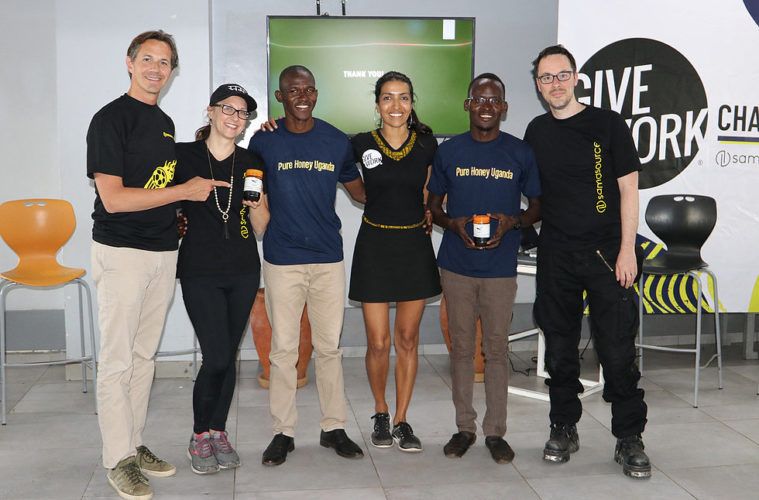Four Startups From Kenya And Uganda Win $6,000 To Continue Building Their Businesses

The Leila Janah Foundation, a non-profit organization supporting entrepreneurs in East Africa, has today announced the winners of its sixth annual Give Work Challenge (GWC) for existing businesses.
The winners from Kenya include; Mvuvi and Kono Farm together and from Uganda; Mawejje Creations and the Reusable Sanitary Pad Project. Each of the four companies will receive one year of mentorship and an additional grant of $6,000 to continue building their businesses.
The GWC program run by the foundation, is a business plan competition seeking to support youth and women ventures in East Africa with mentorship, funding and community support. The accelerator program targets low-income entrepreneurs and runs various editions throughout the year for both existing and brand-new businesses.
Liliosa Mbirimi, Program Director at the Leila Janah Foundation, said “The Give Work Challenge is a movement that displays the powerful will of women and youth in East Africa to create decent work for their communities and play a role in global economic and gender empowerment. Through the GWC grant and mentorship, each of our winners will have a larger impact on their communities that will ripple out and positively impact many more individuals.”
Mvuvi, based in Kenya, produces high-quality processed fish while reducing waste and environmental pollution in Lake Victoria by converting fish waste into animal feed, fertilizer and energy.
“Mvuvi applied for the LJF’s GWC because it resonates deeply with our mission to empower marginalized individuals through meaningful opportunities,” said Arnold Adero, founder of Mvuvi.
“Winning the fund fills us with immense gratitude and excitement, as it fuels our commitment to creating a lasting impact and driving positive change in the fisheries and aquaculture community.”
Kono Farm is promoting sustainable snail agriculture as both an alternative protein source and an ingredient for skincare.
In Uganda, Mawejje Creations leverages both plant-based fibers and textile waste to create fashionable clothing and is providing young people in the community with the skills to become job creators, not seekers.
Finally, The Reusable Sanitary Pad Project is a social enterprise aiming to keep girls in school and empower young mothers through jobs to make and distribute reusable sanitary pads and education on menstrual health.
The LFJ is a primary shareholder of Sama, a global organization that provides data annotations for Artificial Intelligence (AI) models.
“Sama and the LJF’s shared mission has already helped thousands in East Africa, whether it’s by helping them establish or grow their own businesses, develop valuable work skills, materially improve their lives and positively affect their communities through formal employment or business ownership.” said Wendy Gonzalez, Sama CEO and a member of the Board of Directors of the Leila Janah Foundation.
According to the LFJ, since GWC’s establishment in 2018, it has awarded more than $200,000 in grant money to 37 ventures based in Kenya and Uganda.
